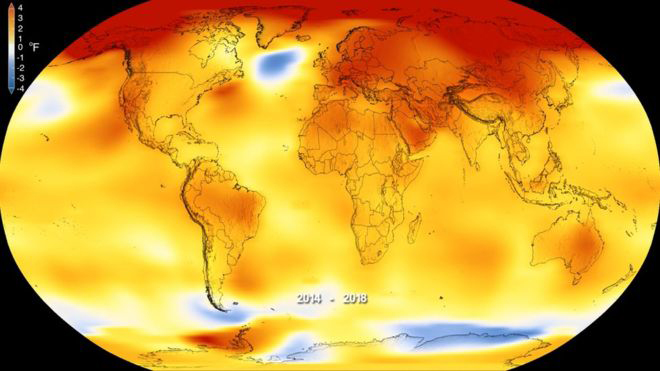It’s not official, yet, but July likely became the Earth’s hottest month on record.
Until a week ago many would quibble, the hottest that is since direct temperature information — thermometer measurements — began in the mid-19th century.
Furthermore, some point to major fluctuations in the past’s climate where notable warming and cooling periods also took place. However, quibble no more those who believe there’s still even a debate about the threat of climate change or its global reach.
A pair of studies published last week not only show that temperatures have risen more rapidly and are far more widespread not just in the past 150 years but in the past 2,000.
Absent direct temperature data, researchers employed a range of methods, including data on ancient trees’ growth rings, layers of glacier ice and the remnants of coral reefs, to establish that what we are seeing now is off the charts.
The research was also able to establish that prior to 1850, major climate events were linked to volcanic eruptions. After 1850, no event — to degree or extent — neared the changes caused by greenhouse emissions since the mid-20th century..
Our newspaper has not shied from this debate for more than a decade despite publishing in the shadow of King Coal. For the record, as we have noted countless times, though we’re no experts on climate science, we have the good sense to listen to those who are.
And those experts have continued to declare unequivocally, based on staggering amounts of research and data, that the hour is getting late to address climate change.
They speak of average global temperatures warming anywhere from an additional 5.4 to 9 degrees Fahrenheit by 2100.
They warn of rainfall from storms that rather than coming down in buckets comes down in rivers.
They point to the link between declining global biodiversity — a million plant and animal species on the verge of extinction — and global warming.
No, it’s not all gloom and doom. Even the private sector is taking note of future forecasts.
For instance, just last week, Ford, BMW, Honda and Volkswagen essentially rejected the Trump administration’s environmental extremism on auto mileage rules.
Instead, they sided with California and 13 other states that are working toward the Obama administration’s goal of requiring U.S.-made cars and trucks to average more than 50 miles per gallon by 2025.
Still, the risks from the ongoing climate crisis are too serious to take much solace from even this decision.
August is often said to be summer’s last stand.
But unless we take steps now to address climate change, we may be making our own in the near future.




